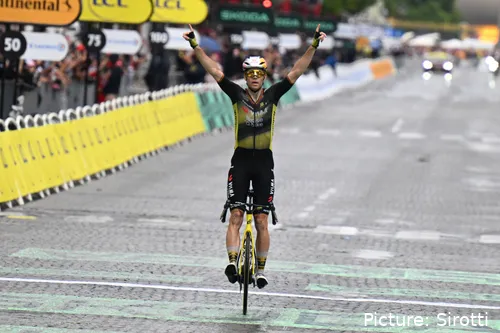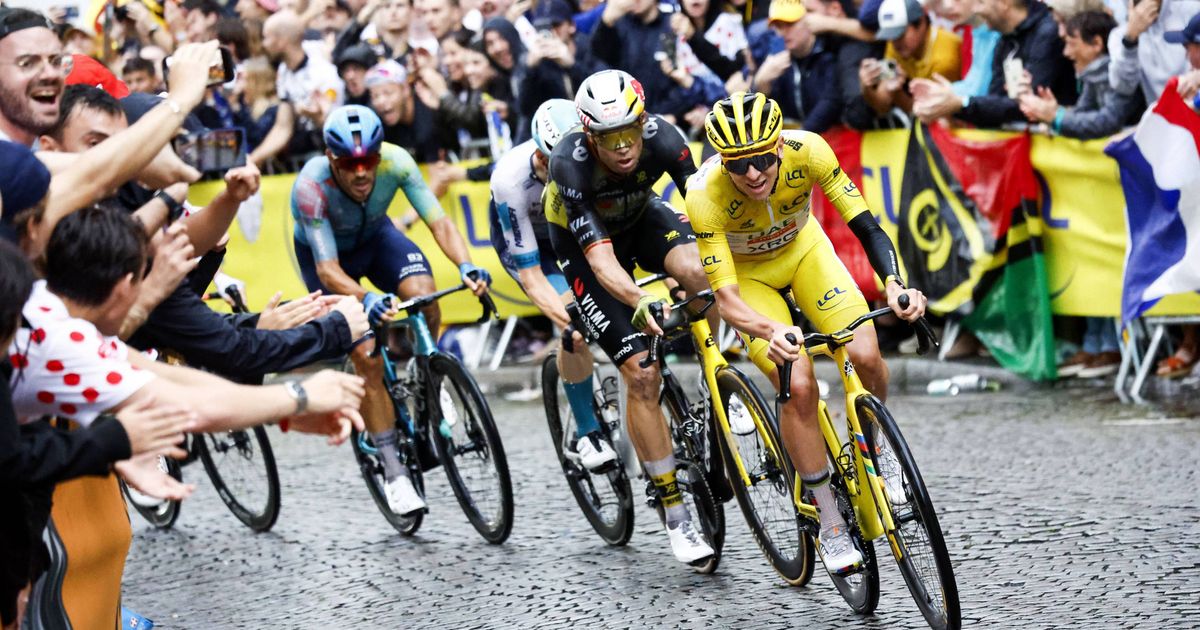Kittel remembers a time when the fast men had real room to build their Tour. “There used to be eight or ten chances,” he reminisces. “Now, hopefully, there are four left.” The change doesn’t strike him as a simple adjustment of the course, but a progressive loss of the space that defined his specialty.
Flat stages, in danger of extinction?
One of the messages he insists on repeating is that you cannot demand spectacle where the route itself does not allow it.
“If a stage is completely flat, you can’t expect a miracle just because there are sprinters,” he explains. He considers it unfair that teams are publicly pressured to “animate” the race on days when the peloton needs to rest or where there is no terrain to create the chaos that many are calling for.

Wout van Aert defeated Tadej Pogacar in the “new” Tour de France finale
“It’s the route that makes a stage exciting or not,” he stresses. And when the few flat days turn into tough transition days, the result is obvious: fewer real options for those who dedicate entire weeks to surviving in the mountains.
But where the emotional charge is most noticeable is when talking about the end of the Tour. For him, the Champs-Elysées sprint was not just tradition: it was the logical culmination of the three-week effort. “A great tradition has been lost,” he laments in a tone that reflects the personal implication of the memory.
Kittel is not just any observer. His 89 professional victories, including 14 Tour stages, four Giro stages and one Vuelta, put him in a privileged position to understand what Paris was all about. He won there twice, and every detail remains in his memory.
He recalls the atmosphere before the final battle: “Entering Paris, arriving on the Champs-Elysées, crossing the finish line for the first time… you immediately feel that a crucial moment is beginning.
And he also remembers something very personal: “Paris smells different. Especially the Champs Elysées. It smells of food and perfume. It’s not like the other finishes of the Tour.”
A new challenge in cycling
Kittel recognizes that cycling is evolving and that the new generation of pure sprinters is forced to adapt. “They have to be more versatile. They have to climb better than us,” he says.
The competition has also changed: now virtually every team has its own sprinter, and every opportunity is more valuable precisely because there are fewer of them. “Every sprint is harder than before,” he admits. And in that situation, the sprinters must make the most of every opportunity.
Kittel is not asking to go backwards or questioning the need to innovate. His message is different: that the Tour should not forget what made its narrative unique. The sprint stages were part of the natural balance of the race; they offered contrast, respite and, at the same time, the sheer tension of the final pitch.
“It’s part of what makes the Tour the Tour,” he concludes.
